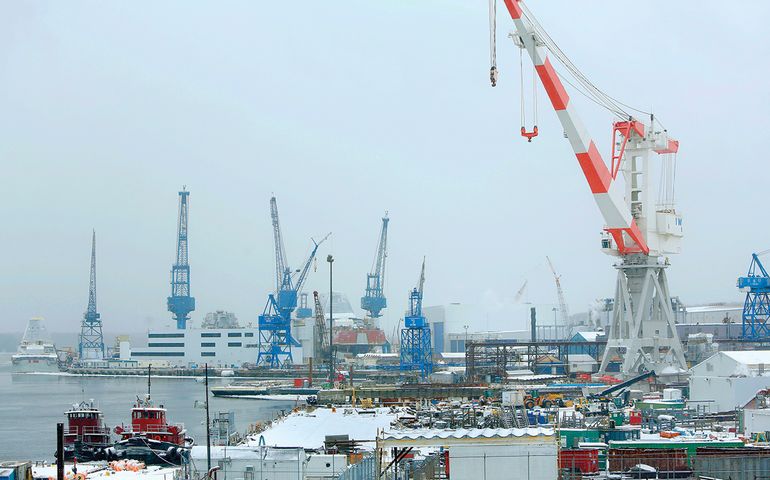Processing Your Payment
Please do not leave this page until complete. This can take a few moments.
- News
-
Editions
-
- Lists
-
Viewpoints
-
Our Events
-
Event Info
- Women's Leadership Forum 2025
- On the Road with Mainebiz in Bethel
- Health Care Forum 2025
- On The Road with Mainebiz in Greenville
- On The Road with Mainebiz in Waterville
- Small Business Forum 2025
- Outstanding Women in Business Reception 2025
- On The Road with Mainebiz in Bath
- 60 Ideas in 60 Minutes Portland 2025
- 40 Under 40 Awards Reception 2025
- On The Road with Mainebiz in Lewiston / Auburn
- 60 Ideas in 60 Minutes Bangor 2025
Award Honorees
- 2025 Business Leaders of the Year
- 2024 Women to Watch Honorees
- 2024 Business Leaders of the Year
- 2023 NextUp: 40 Under 40 Honorees
- 2023 Women to Watch Honorees
- 2023 Business Leaders of the Year
- 2022 NextUp: 40 Under 40 Honorees
- 2022 Women to Watch Honorees
- 2022 Business Leaders of the Year
-
-
Calendar
-
Biz Marketplace
- News
- Editions
- Lists
- Viewpoints
-
Our Events
Event Info
- View all Events
- Women's Leadership Forum 2025
- On the Road with Mainebiz in Bethel
- Health Care Forum 2025
- On The Road with Mainebiz in Greenville
- On The Road with Mainebiz in Waterville
- + More
Award Honorees
- 2025 Business Leaders of the Year
- 2024 Women to Watch Honorees
- 2024 Business Leaders of the Year
- 2023 NextUp: 40 Under 40 Honorees
- 2023 Women to Watch Honorees
- 2023 Business Leaders of the Year
- + More
- 2022 NextUp: 40 Under 40 Honorees
- 2022 Women to Watch Honorees
- 2022 Business Leaders of the Year
- Nomination Forms
- Calendar
- Biz Marketplace
Here’s how Maine delegation helped secure funding for two BIW contracts
 File Photo / Tim Greenway
The U.S. Navy has awarded Bath Iron Works a $54 million contract extension for work on Arleigh Burke-class destroyers.
File Photo / Tim Greenway
The U.S. Navy has awarded Bath Iron Works a $54 million contract extension for work on Arleigh Burke-class destroyers.
The U.S. Navy has awarded General Dynamics Bath Iron Works funding for the planning and construction of two Arleigh Burke-class destroyers, DDG 126 and DDG 127. The contract modification fully funds the two ships.
In a joint press release, U.S. Sens. Susan Collins, R-Maine and Angus King, I-Maine, and U.S. Rep. Chellie Pingree, D-1st District Maine, explained how they helped secure the funding enabling BIW to stabilize its future workload. Rep. Bruce Poliquin, R-2nd District Maine, outlined his role in a separate news release.
Here’s how the releases outlined their respective roles:
- Collins, as a senior member of the Senate Appropriations Committee, secured the $433 million in additional DDG-51 funding in the Defense Appropriations bill that became law in May 2017. The funding builds on the $1 billion that Collins secured toward the construction of an additional DDG-51 destroyer in 2015. One of the ship contracts awarded today to BIW is a direct result of that funding. The additional destroyer was included on the Navy’s list of unmet requirements.
- As a member of the Senate Armed Services Committee, King worked to authorize more than $5.62 billion for the Navy destroyer programs in the 2018 National Defense Authorization Act, including more than $5 billion for the procurement of three DDG-51 Arleigh Burke destroyers in fiscal year 2018 that Bath Iron Works can compete to build. He also helped secure authorization of $90.5 million for the continued production of DDG-1000 Zumwalt-class destroyers, all of which are built at Bath. The Senate passed the 2018 NDAA earlier in September by a vote of 89-8.
- As a member of the House Appropriations Committee, Pingree has advocated over several years for the funding for the DDG-51 class destroyer program in the House-passed bills. In particular, she lobbied in the House to support funding included by Collins and King in the Senate’s fiscal year 2016 bill to provide an additional DDG-51 destroyer. She was successful in her efforts this June to secure language in the fiscal year 2018 Department of Defense Appropriations bill to clarify the intent of the Congress on the construction of the additional DDG-51.
- Poliquin, a member of House committees on veterans affairs and financial services, cosponsored the amendment with Pingree that was added in July to a House defense bill that was critical in blocking a provision that could have obstructed the contract negotiations for the Arleigh Burke-class of destroyers at BIW.
DDG 126 was awarded under the contract that was part of a multi-year competition for DDG 51-class destroyers in 2013, while DDG 127 was approved by Congress under separate legislation.
Because the Navy expects to release a competitive solicitation for additional DDG 51 class ships in the Flight III configuration in future years, the contract award amount is considered sensitive information and is not being made public at this time.
“These contracts help to stabilize our business and are welcome news. We are grateful to Maine’s congressional delegation and Navy Secretary Spencer for their efforts and leadership,” Dirk Lesko, president of Bath Iron Works, said in a separate news release.
At present, the Navy has 280 deployable battle force ships, well short of the new goal set by the Navy in December for 355 ships.
“These contracts to construct two new DDG-51 class destroyers in Bath demonstrates the Navy’s commitment to BIW and its confidence in the highly skilled, hard-working employees at the shipyard,” Collins, King and Pingree said in their joint news release. “There is no workforce in the world better positioned to build these ships. As the workhorses of the Navy, destroyers’ ability to deliver capability and presence has been demonstrated many times over. These ships will strengthen our naval fleet and allow the Navy to promote stability and security in the face of proliferating threats around the globe.”














Comments